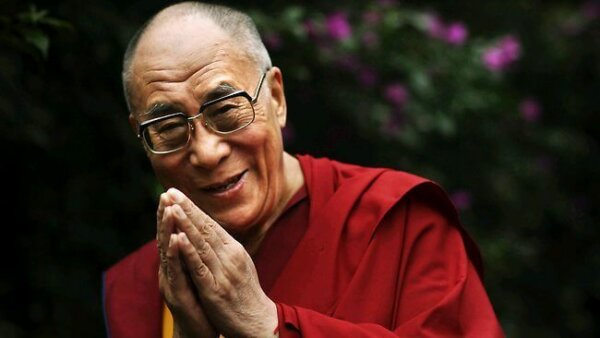Destructive Emotions According to Daniel Goleman


Written and verified by the psychologist Valeria Sabater
Within Buddhist philosophy, there are three disturbing elements that alter the personal balance of the human being. These include anxiety, anger, and ignorance. Daniel Goleman talked about them and his conversation with the Dalai Lama in his book Destructive Emotions.
Destructive emotions according to Daniel Goleman
One of Daniel Goleman’s most interesting books is Destructive Emotions. In this work, he explains that, when the Dalai Lama met with him and a small group of scientists and philosophers at the summit of the Mind Life Institute, the world was about to change. Just a few months later, the 9/11 attacks in New York happened.
This book is the result of all the conversations held with the spiritual leader but also of what people experienced afterward. Why are human beings capable of committing violent acts? Why are seemingly intelligent and rational people capable of destructive behavior?
Psychologists, psychiatrists, sociologists, and any analyst of human behavior would undoubtedly talk about education, context, personality, social factors, and even genetic and cerebral aspects. However, the Dalai Lama emphasized an aspect that Daniel Goleman felt particularly attuned to. This means that he spoke of destructive emotions, those that are often governed by mere impulses and that show the worst in yourself.
While from psychology we can understand these realities as “negative emotions”, Buddhism labels them as kleshas or impurities, which are disturbing elements that poison the mind.

What are destructive emotions?
The first question that may come to mind is, “Do destructive emotions really exist?” However, from the field of emotional psychology, there’s an aspect that those in the field often express: that there are no negative emotions.
The entire spectrum of our emotions serves a purpose. Therefore, it’s not entirely correct to assume that there are good and bad emotions. Fear, for example, guarantees survival and sadness urges us to a period of introspection to accept certain realities and change others.
These states, somewhat more adverse and difficult to assume for the human being, have key importance in your behavior and also in your survival. What was Daniel Goleman’s goal when he wrote Destructive Emotions? Well, first of all, there’s one aspect that needs to be clarified. This book by the best-selling author in the field of emotional intelligence takes into account spiritual practice. It’s specifically from the perspective of the Dalai Lama.
Destructive emotions according to Daniel Goleman
Therefore, Goleman differentiates the Western perspective of emotions and the more philosophical and less scientific vision of Buddhism, which still offers us a valuable framework from which to reflect on. Moreover, in those talks held with the Lama in 2001, many of the more rigorous minds of the West surrendered to the Tibetan leader’s approach. And they did so for many reasons.
Adverse emotions are states of mind that affect our words and actions
Buddhist philosophy reveals that the most common sources of suffering and unhappiness are embedded in a series of adverse emotions that plunge you into nihilism, ignorance, and materialism. For instance, according to the Dalai Lama, they’re mental states that distort your internal dialogue, the way y0u communicate with others, and that influence your behavior.
So what are these adverse emotions according to Buddhism?
- Hatred.
- Anger.
- Frustration.
- Anxiety.
- Jealousy.
- Pride.
- Envy.
- Desire understood as attachment.

From a scientific standpoint, it’s worth noting that the Dalai Lama isn’t too far wrong if we consider one aspect. There are indeed destructive emotions in the most literal sense. Two of them, namely anger and anxiety, tend to be particularly harmful.
For example, according to a study at the University of Sydney, the risk of suffering a heart attack is 8.5 to 10 times higher in the two hours after experiencing intense and excessive anger. Therefore, it’s something that you should be aware of.
Kleshas, the poisons of the mind and their four antidotes
The world of psychology’s curiosity of Buddhism and its philosophy isn’t new. For instance, it was in the 60s that dialogue between Buddhism and Western sciences first began.
In fact, the works of Carl Gustav Jung initiated the way that later would culminate in the meetings of the Dalai Lama with people such as Daniel Goleman, Paul Ekman, Richard J. Davidson, and Matthieu Ricard, etc.
Throughout this space of connection and learning, concepts such as evil, suffering, and happiness have always been reflected upon. At the same time, something interesting that Buddhism always says that there are “antidotes” for the kleshas, for those destructive emotions that poison your mind. They’re the following:
- Loving-kindness (maitri; byams pa).
- Compassion (karuna; snying rje).
- Empathetic joy (mudita; dga’ba).
- Humility (upeksha; btang snyom).
The benefits of meditation
According to Buddhist philosophy, meditation is a common way to train the mind and thereby achieve a state of calm, better balance, and appreciation of the present moment.
Studies such as the one conducted by Dr. Richard Davidson of the University of Wisconsin-Madison have been key in demonstrating the great benefits of this practice.

Dr. Davidson’s work has lasted more than three decades and in it, he shows how meditation affects neuroplasticity and generates very positive changes in our brain. It reduces stress and boosts attention, creativity, and emotional management. So much so that Daniel Goleman himself hasn’t hesitated to dedicate more than one book to this subject, such as the one published two years ago entitled Initiation to Mindfulness.
To conclude, destructive emotions are basically internal states that place limits on our potential, on our well-being, and can also bring out the worst in us. Both Buddhism and modern psychology agree on one aspect: it’s in your hands to control these impulses, these internal storms. You have resources and you can do it.
All cited sources were thoroughly reviewed by our team to ensure their quality, reliability, currency, and validity. The bibliography of this article was considered reliable and of academic or scientific accuracy.
- Goleman, Daniel (2002) Emociones destructivas. Kairos
This text is provided for informational purposes only and does not replace consultation with a professional. If in doubt, consult your specialist.








